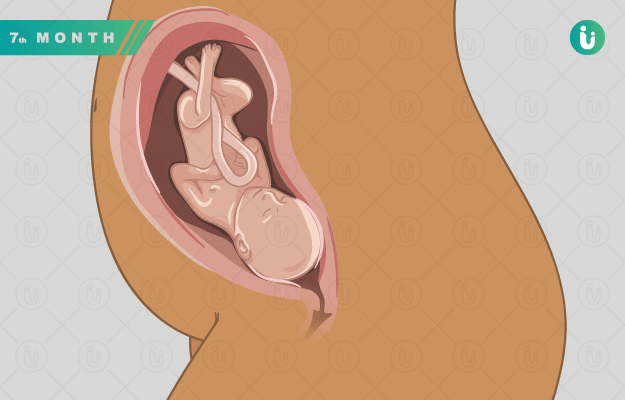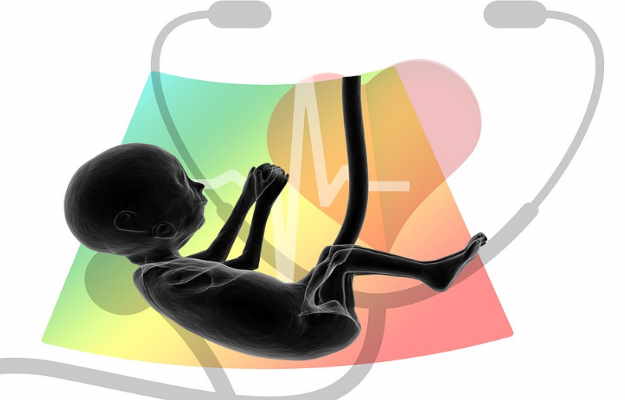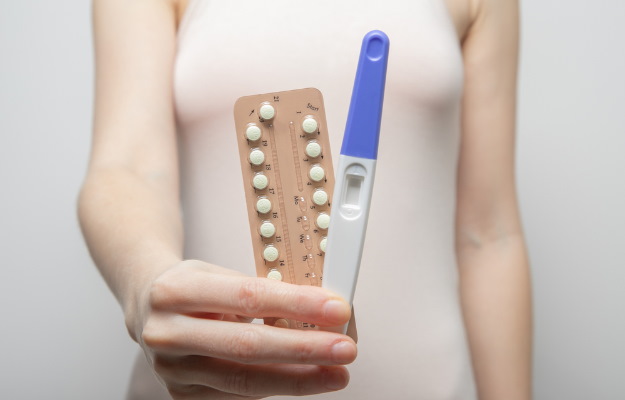If you have just discovered that you are pregnant, you might want to be prepared for what comes next. The first thing you need to understand is that your baby will grow in you for about 280 days, or 40 weeks, or just over nine months. Before his or her birth, your little bundle of joy will depend on you for everything: oxygen, nutrition and immunity.
The first step you need to take is to get a comprehensive health assessment done for you and your spouse or partner. You will then be able to understand what sorts of tests, screenings and medical help you and your baby will need going forward.
You might not realise it, but your baby can also get a lot of unwanted things from you during your pregnancy. For example, if you have hepatitis B but you don't know it (which tends to happen in a lot of cases of hepatitis B), you could pass the infection on to your baby in the womb. The fix? A simple blood test can tell your doctor if you have this viral infection that affects the liver. Once the doctor knows, he/she can advise medicines to drastically reduce the chances of you transmitting the disease to your baby.
Wondering how to go about it all? Here’s everything you should know about the tests and screenings you need during pregnancy.
- First trimester tests and screenings
- Second trimester tests and screenings
- Third trimester check ups in pregnancy
- Takeaways
First trimester tests and screenings
The tests that you need to get done right after you discover you are pregnant should be the most comprehensive ones. Fix an appointment with an obstetrician. Take your spouse or partner along for the first meeting as well. The doctor will help you determine your due date based on when you had your last period, and take a complete medical history as well. You should discuss all ailments you or your immediate family have been diagnosed with - including diabetes, high blood pressure, heart disease and cancer. The doctor will recommend tests and screenings, depending on your medical history, age and other factors. But there are some tests that all pregnant women should get done:
1. Blood test: A complete blood count (CBC) looks at all the different cells in your blood, including haemoglobin, red blood cells, white blood cells, platelet count, etc. The haemoglobin count can help to analyse if you are at risk for anaemia. The white blood cell count will determine your capacity to fight infections. The platelet count will reveal if you have blood clotting issues.
2. Blood type (Rhesus factor): This test determines if you have the Rhesus or Rh factor or not. Rh factor is a protein found on the surface of red blood cells - if you have it, you are Rh-positive. If you don’t, then you are Rh-negative. If your foetus’ Rh factor is not the same as yours, it can lead to severe complications. Chief among them: Rhesus Sensitization during Pregnancy, which can damage the red blood cells. So it’s best to monitor this from the beginning.
3. Urinalysis: This test can reveal a number of things. If your urine has a high red blood cell count, then you might have a urinary tract disease or kidney infection. If your urine has a high white blood cell count then this could be a sign of urinary tract infection, a bladder infection or a kidney infection. High levels of glucose in your urine can be indicative of diabetes mellitus. The urinalysis is also needed to monitor the protein levels in your blood. If these protein levels are too high, then you could be at risk of developing preeclampsia, which is a serious complication.
4. Urine culture: Urinary tract infection (UTI) is both common and dangerous during pregnancy. If the UTI goes undetected and untreated, it can cause problems like premature labour. Urine culture tests your urine for the presence of bacteria. Your doctor may ask you to get this simple test done multiple times during your pregnancy.
5. Rubella test: Rubella, also known as German measles, is a highly contagious disease. Most people who have it might not even realise that they have got it because the rashes associated with it can take weeks to appear. The Rubella test will check your blood for the presence of or traces of the rubella virus, to check if you have this disease or have ever been infected by it. Passing the rubella virus on to your foetus can lead to birth defects. However, if you haven’t been vaccinated against rubella before, then you should not get vaccinated during your pregnancy.
6. Hepatitis B and C: All pregnant women should be tested for the Hepatitis B virus. This is because there is a very high chance (90%) that the mom-to-be will pass the virus on to her unborn child if she has it. Doctors can prevent this by doing the Hepatitis B test and recommending proper medications as and when they are required.
Hepatitis B is one of the types of liver disease. It can cause liver cancer in later stages. It is difficult to detect as the liver can continue to function even if more than half of it is damaged.
For women who are at risk for Hepatitis C infection - this includes people who inject drugs or have been on haemodialysis for a long time - their doctor will also prescribe a Hepatitis C test. Moms-to-be who have the infection can pass it down to their foetus, and may require a special care protocol.
7. Tests for sexually transmitted infections (STIs): Sexually-transmitted infections (STIs) like syphilis and chlamydia can cause serious complications for both you and your foetus. If you test positive for STIs, then you will have to get the treatment done during your pregnancy. You will have to be tested again later to check if the treatment worked. Your doctor might also recommend a test for gonorrhea if you seem to be at risk for it.
Your doctor may simply use a swab to collect cells from the vagina or cervix for the Chlamydia test. The VDRL test, or Venereal Disease Research Laboratory test, for syphilis, is a blood test.
Your doctor may also perform a pelvic exam to check for any infections or abnormalities.
8. Human immunodeficiency virus test: All pregnant women are advised to get the Human immunodeficiency virus (HIV) test. The reason: if you have been infected, then there are chances that you might pass it on to your baby.
Medical research has made many strides in preventing and managing HIV/AIDS infection. Even if you test positive, doctors can give you medicines and other treatments to reduce the chances of transmitting the virus to your baby during the pregnancy, during labour or at the time of delivery.
9. Tuberculosis test: If you have been infected with HIV or are in close contact with someone who already has tuberculosis (TB), then you might be at risk of getting the disease yourself. If you have TB or if you test positive for latent TB, then you might pass it on to your baby or he or she might be born with a lower weight.
The TB test can be done as a simple blood test. According to the US Centres for Disease Control and Prevention, the TB skin test - in which the doctor injects a small amount of tuberculin into the skin to gauge the body's reaction to it about 48 hours later - is safe throughout pregnancy.
10. Zika virus test: The Zika virus is spread through mosquito bites. If you have been infected, then the virus can pass from you to your baby and cause birth defects. Your doctor will, however, only recommend that you get tested for the Zika virus if you have visited a country or live in an area that has been affected by it.
11. Pregnancy-associated plasma protein A (PAPP-A): This particular type of plasma protein develops in the placenta during early pregnancy. It can help the foetus develop new blood vessels and keep it safe from the mother’s immune system, too. Usually, PAPP-A levels increase during pregnancy and are supposed to stay high until delivery. If this is not the case, your baby might develop chromosomal anomalies and lead to birth complications and Down Syndrome.
The PAPP-A test is a blood test that is usually done between the 11th week of pregnancy and the 14th week of pregnancy.
12. Human chorionic gonadotropin test: The beta hCG test is a blood test that measures the quantity of human chorionic gonadotropin (hCG), an important hormone produced in the bodies of all pregnant women, from the eighth day after conception. hCG plays a huge role in maintaining the pregnancy until the placenta is fully formed. Testing for the levels of this hormone can reveal the risks of chromosomal abnormalities and even tumours.
13. Ultrasound (NT scan): To understand and monitor the growth of your foetus, your doctor will perform an ultrasound in the first few weeks of pregnancy, and follow it up with regular ultrasounds during the entire gestation period to map your baby’s growth. An ultrasound can help to detect the baby's heartbeat from the 6th week of your pregnancy.
An ultrasound can also help to detect an ectopic pregnancy or a miscarriage.
One of the most important ultrasounds during pregnancy, the Nuchal Translucency or NT Scan, is also done during this trimester, usually between the 11th and 14th weeks of pregnancy. During this scan, doctors observe the thickness of the fold behind the foetus' neck - known as the nuchal fold. Though this test is not used to make a diagnosis, it can give early indications of congenital heart problems, as well as conditions such as Turner syndrome (in which an X chromosome or a part of one of the X chromosomes in girls is missing) and trisomy 13 and trisomy 18.
14. Double marker test: A combination of a blood test and an ultrasound during pregnancy, the double marker test may be prescribed to women who are over 35 years old at the time of their first pregnancy, moms-to-be who have type 1 diabetes or those who suffer from obesity. It may also be prescribed for moms-to-be who have previously given birth to a child with a chromosomal abnormality. The test helps to rule out problems in the development of the baby.
Second trimester tests and screenings
If you tested positive for any STIs or any other disease that can be passed on to your baby, then your doctor might ask you to repeat those tests during the second and third trimesters to check if the treatment is working. That apart, there are a number of tests and screenings that you need to get done from the 13th week of pregnancy to the 26th week of pregnancy:
1. Alpha-fetoprotein (AFP): AFP is a protein produced in the liver of the developing foetus, which can pass into the mother’s bloodstream via the placenta. This occurs during the second trimester, so your blood will be tested for the levels of AFP produced by the foetus. In case the AFP levels are too low or too high, your baby might be susceptible to a neural tube defect such as spina bifida or Down Syndrome. Very high AFP levels can also be indicative of a twin pregnancy or multiple foetuses developing in your womb. This test is also known as the maternal serum AFP test.
2. Amniocentesis: This test is offered to women between the 15th week of pregnancy and the 20th week of pregnancy, only if they are at risk of passing on genetic problems and disorders to their baby. If your previous tests have shown your foetus to be at risk of chromosomal anomalies or neural tube defects, your doctor may prescribe this test to rule out or confirm a diagnosis. For this test, the amniotic fluid surrounding your baby in the womb is collected and analysed in a lab.
3. Chorionic villus sampling (CVS): This prenatal test involves taking samples of the placenta, which often has the same tissues as the foetus. This test can determine if your baby has any chromosomal anomalies and is at risk of developing Down Syndrome or Turner Syndrome. This test is only recommended to women who are at risk of passing on genetic disorders that their family might have suffered from.
4. Triple marker test: Usually done between the 16th week of pregnancy and the 18th week of pregnancy, this test looks at three things: the level of AFP, hCG and estriol (a type of estrogen) in the mom-to-be's blood. This test is usually only recommended to expectant mothers who are at high risk of having babies with birth defects.
5. Glucose tolerance test: Usually done between the 24th week of pregnancy and the 28th week of pregnancy, this test is of vital importance. It measures the levels of glucose in your blood, and can indicate if you are at risk of developing or have already developed gestational diabetes. If you are at risk of diabetes or had gestational diabetes in a previous pregnancy, then your doctor might recommend that you do this test in the first trimester itself to better manage the disease.
6. Group B streptococcus culture: Group B streptococcus or GBS is a bacteria that is found in the lower genital tract of women, and while it is generally harmless, it can cause serious illnesses in the mother during pregnancy. Chorioamnionitis, placental tissue infection and postpartum infections apart, GBS can also cause UTIs which can lead to preterm labour, birth, pyelonephritis or sepsis. If a newborn baby gets infected by GBS, it can lead to pneumonia and meningitis. If you test positive for GBS, then your doctor will recommend antibiotics to treat it.
7. Genetic carrier screening: Ideally, this test should be done before pregnancy; especially if you have a family history of certain genetic disorders. If it was not performed before for any reason, then your doctor might recommend it during the second trimester to see if you or your foetus is at risk of diseases like cystic fibrosis, spinal muscular dystrophy, fragile X, thalassemia, sickle cell anaemia, or Tay-Sachs disease (in which the nerve cells start getting destroyed from an early age).
8. Level 2 ultrasound: A high-resolution ultrasound that is done specifically between the 18th week of pregnancy and the 20th week of pregnancy, the level 2 ultrasound gives a clear picture of foetal development. Doctors can see the internal organs of the baby, the baby's size and monitor the foetal heart rate through it.
Read more: 3D Ultrasound During Pregnancy
Third trimester check ups in pregnancy
Once you get to the third trimester of your pregnancy, your doctor might tell you to visit for routine health checks once every two or three weeks. Your blood pressure and weight gain during pregnancy will be monitored and you will have to keep track of how often you can feel the baby move. That apart, your doctor might conduct the following tests.
1. Group B strep culture: Even if you and your baby are safe from developing GBS-related issues in the second trimester, it’s best to repeat the test in the third trimester to make sure that the bacteria levels have not increased or caused an infection in the meantime.
2. Foetal monitoring: Your doctor might conduct foetal monitoring during the third trimester and also during labour to map the heart rate and other functions of the foetus. The average foetal heart rate ranges between 110 and 160 beats per minute, but it can change according to the conditions in the uterus. A very high or low heart rate can be indicative of oxygen-related issues or other complications. If these issues are serious, then the doctor might have to intervene in an emergency and perform a Cesarean to deliver the baby.
3. Ultrasound: The final ultrasound during pregnancy is done a couple of weeks before the due date, to check the position of the baby and make sure that everything is okay.
Read more: Colour Doppler Ultrasound During Pregnancy
Takeaways
While most of us get the blood tests, urinalysis and ultrasounds needed during pregnancy, some people tend to skip tests that check for hepatitis B infection and STIs. This can have long-lasting, and severe, consequences for the baby. Remember that a mom who has hepatitis B is very likely (90%) to pass it on to the foetus.
Double marker test and triple marker test may not be standard in some private clinics and government hospitals. If you are at high risk of giving birth to a child with a congenital defect, ask your doctor about these tests.
Remember that these tests and screenings are designed to help you, not cause you unnecessary stress during your pregnancy. So, take it easy, try to maintain a journal of your pregnancy symptoms - from nausea and vomiting during pregnancy to indigestion during pregnancy - and discuss these with your doctor during regular check-ups.
Read more: Hyperemesis Gravidarum: Meaning, Symptoms, Causes, Diagnosis, Treatment
Find Obstetrician and Gynaecologist in cities
- Obstetrician and Gynaecologist in Bangalore
- Obstetrician and Gynaecologist in Mumbai
- Obstetrician and Gynaecologist in Ghaziabad
- Obstetrician and Gynaecologist in Chennai
- Obstetrician and Gynaecologist in Pune
- Obstetrician and Gynaecologist in Delhi
- Obstetrician and Gynaecologist in Hyderabad
- Obstetrician and Gynaecologist in New Delhi
- Obstetrician and Gynaecologist in Gwalior
- Obstetrician and Gynaecologist in Gurgaon
































